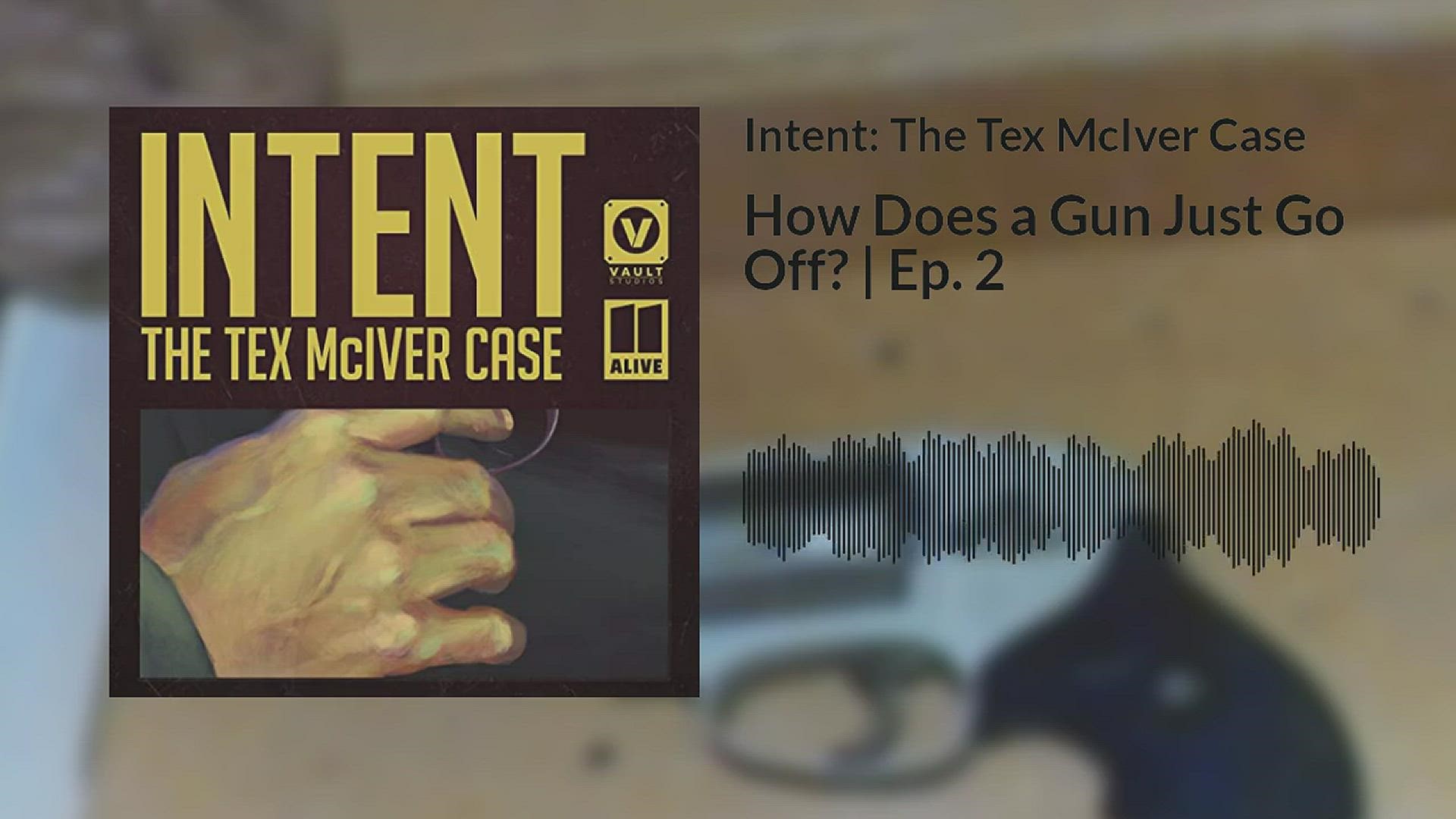ATLANTA — Listen to Intent: The Tex McIver Case on Apple Podcasts, Spotify, Amazon Music and Stitcher.
In the hours before she died, when nurses at Emory University Hospital asked Diane McIver what happened, she simply told them it was an accident.
Earlier that night, Diane had been shot while riding back from a weekend trip with her husband, Tex McIver, and a close friend.
The weapon in question happened to be a handgun held by her husband in the back seat of the vehicle.
Tex, along with some of his closest friends, also said the whole thing was a tragic accident.
As the night progressed, the scene would become even stranger, according to hospital staff. Some would later testify about that night, referring to Tex as "emotionless."
As friends and family members grieved the loss of Diane - described as a "brilliant and inspiring force of nature" in her obituary - an investigation into her death was already underway.
Police interviewed Tex as well as the couple's friend, Dani Jo, who drove the vehicle at the time of the shooting. Hospital staff were also interviewed as investigators attempted to piece together what happened on the route Dani Jo took through Atlanta on the group's way home.
Questions surrounding Tex's blood alcohol level during the shooting would eventually arise. While it wasn't tested that night, Howard Sills - the Putnam County Sheriff and friend of the McIvers - told Tex alcohol still might factor into the incident. Both he and his wife had enjoyed multiple glasses of wine at dinner the night of the shooting.
Yet, the biggest question raised by Tex's "accident" story would be simple: how could a gun just go off?
The weapon he was holding that night was a Smith and Wesson .38 revolver.
For those unfamiliar with that particular gun, there are essentially two ways to fire it: double action and single action.
Either way, the gun will only fire if somebody pulls the trigger. But, double action requires more force because pulling the trigger performs two actions - it cocks the hammer and then fires the bullet.
Meanwhile, single action simply means the hammer is already cocked, so pulling the trigger only performs one action - firing the gun. It also takes less force and is easier to fire.
As questions began to mount, Tex seemed to go on damage control, setting out to convince the public that he was indeed telling the truth.
Less than two weeks after his wife died, and not at the request of law enforcement, Tex took a polygraph test. It was set up by an attorney and was administered by Richard Rackleff of Federal Polygraph Associates.
Rackleff spent over three hours with Tex, who said he asked Diane for his gun while driving through the streets of Atlanta because he was concerned about possible crime in the area.
The results themselves - according to a scoring tool used by the American Polygraph Association - showed more than a 99% probability Tex was telling the truth. However, polygraph results are generally not admissible in court in Georgia. According to former FBI agent Stephen Foster, this is largely because there are people who can beat the test.
Another key detail of Tex's story that was difficult to pin down: just why exactly he was so afraid that night.
Bill Crane, a political analyst and family friend who offered his services as a spokesperson to Tex, told reporters early on that Tex was nervous about Black Lives Matter protesters when they were driving through Atlanta that night.
However, even if that was a convenient excuse, Tex himself would refute that very claim, later telling 11Alive it simply wasn't true. Instead, he claimed he was concerned about crime in the area and the safety of his wife and friend, Dani Jo.
New episodes of "Intent: The Tex McIver Case" drop every Monday starting August 22. Listen on your favorite podcast apps including Apple Podcasts, Spotify, Amazon Music and Stitcher.

